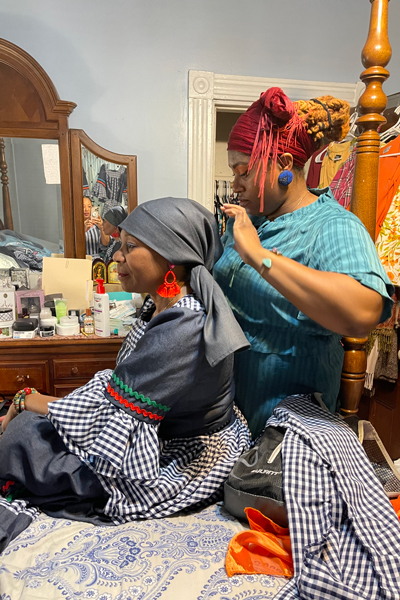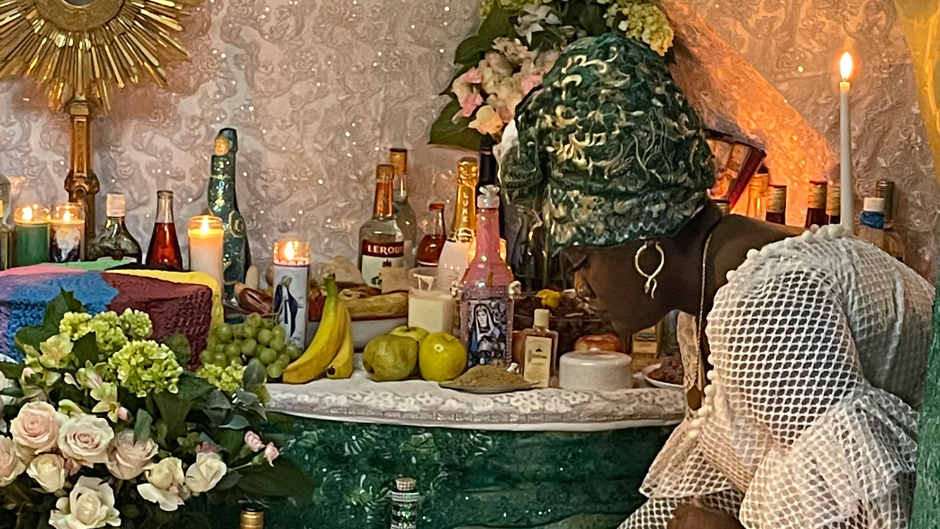Haitian Vodou is a commonly stigmatized religion that is oftentimes mischaracterized as having demonic traditions. Eziaku Atuama Nwokocha’s work goes far beyond combatting these incorrect preconceived notions by demonstrating how practicing Vodou builds community.
“It connects people,” explained Nwokocha, an assistant professor in the Department of Religious Studies at the University of Miami College of Arts and Sciences. “I am showing how a contemporary religion is doing contemporary things, and we’re seeing how people are finding ways of being in community with one another.”
As a scholar of Africana religions, Nwokocha is an expert on the religious traditions of West and Central Africa and the Caribbean. A first-generation Nigerian-American, she also researches Black religious traditions in the United States.

Among other innovative research areas, Nwokocha has studied the connection between fashion and Vodou. This topic is a meaningful and important contribution to the academic literature because “fashion is the meta language that drives us as human beings,” Nwokocha said. “We like to design ourselves and showcase who we are. For people who are reading about Haitian Vodou for the first time, I want to give them a sneak peek at the beauty, glamour, and complexity of the religious traditions—which in turn pushes us away from negative stereotypes about Haiti’s poverty.”
This is a topic Nwokocha explored in her first book, “Vodou en Vogue: Fashioning Black Divinities in Haiti and the United States,” which follows the work of a fashion designer whose profession manifests in her religious vocation to beautify the religious traditions of Vodou.
Prior to joining the University, Nwokocha earned her master’s degree and Ph.D. in Africana studies from the University of Pennsylvania. She also completed a postdoctoral research fellowship in the Department of Religion at Princeton University.
In addition to Nwokocha’s research endeavors, she teaches undergraduate courses including Caribbean Religion, Anthropology of Religion, and Religion and Gender.
Nwokocha praises students at the University for challenging her to think and write differently. “University of Miami students are unlike those anywhere else—they are unafraid to ask for clarity and why something being taught in the classroom is important,” she said. “When I go back to edit my work now, I am very mindful to avoid using dense language, and I pride myself on critical writing clarity.”
Nwokocha is now working on her second book, tentatively entitled “‘Tell My Spirit’: Black Queer Women in Haitian Vodou,” and welcomes students interested in research assistant opportunities to contact her.

